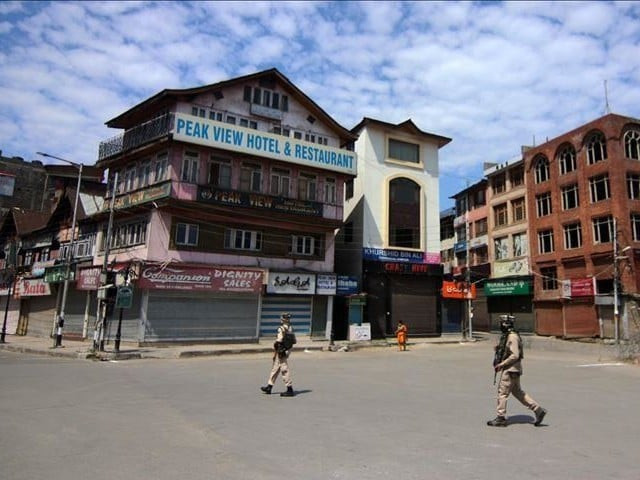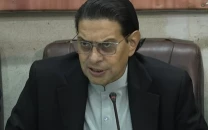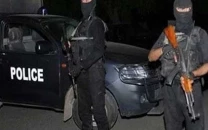Indian army officer faces charges of staging gunfight in IIOJK
Police accuse army captain and his two accomplices of killing three Kashmiri labourers and calling them 'militants'

Police in Indian Illegally Occupied Jammu and Kashmir (IIOJK) on Saturday charged an army captain and his two accomplices for killing three local labourers and calling them as 'militants'.
In a charge sheet filed in a local court, police said the captain had staged a gunfight in South region of the disputed valley on July 8 to make it appear like a clash with 'militants'.
A special investigation team of IIOJK police, which was tasked to probe the fake encounter, filed a 300-page charge sheet against the army officer.
Wajahat Hussian, deputy superintendent of police who headed the probe committee, was quoted by local media that the charge sheet has been filed against three persons in the Principal and Sessions Court Shopain area in South Kashmir.
He identified the accused as Capitan Bhupinder of 62 Rashtriya Rifles, Tabish Ahmad, and Bilal Ahmad, residents of Shopain and Pulwama districts respectively.
On Thursday, the army had said that the process of summary of evidence has been completed about the fake encounter in which three labourers of Rajouri district of Jammu region were killed.
The army added that the authorities concerned, along with legal advisers, are examining the case for further proceedings.
Earlier, the family had identified the deceased men as Imtiyaz Ahmad, 21, Abrar Ahmad, 25, and Abrar Khatana, 18, from photos that circulated on social media after the gunfight.
Seventy days later, the bodies of the slain young men were handed to their families after DNA samples matched with their kin.
On September 18, the army had admitted that three “militants” killed in Shopian were, in fact, civilians from Rajouri.
Meanwhile, on Saturday, two militants were killed and two Indian soldiers injured in a gunfight in the Kanigam village of Shopain.
On August 5, 2019, the Modi government revoked Article 370 and other related provisions from its constitution, scrapping the disputed Himalayan territory of its autonomy. It was also split into two federally administered territories.
Simultaneously, it locked the region down, detained thousands of people, imposed movement restrictions and enforced a communications blackout.
Earlier this week, a multi-party coalition that opposed India's unilateral decision won the region's district council elections.



















COMMENTS
Comments are moderated and generally will be posted if they are on-topic and not abusive.
For more information, please see our Comments FAQ